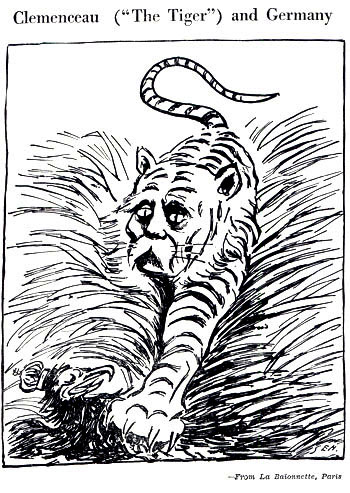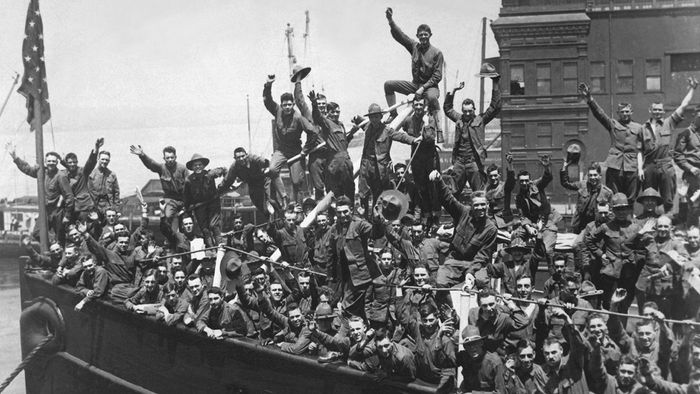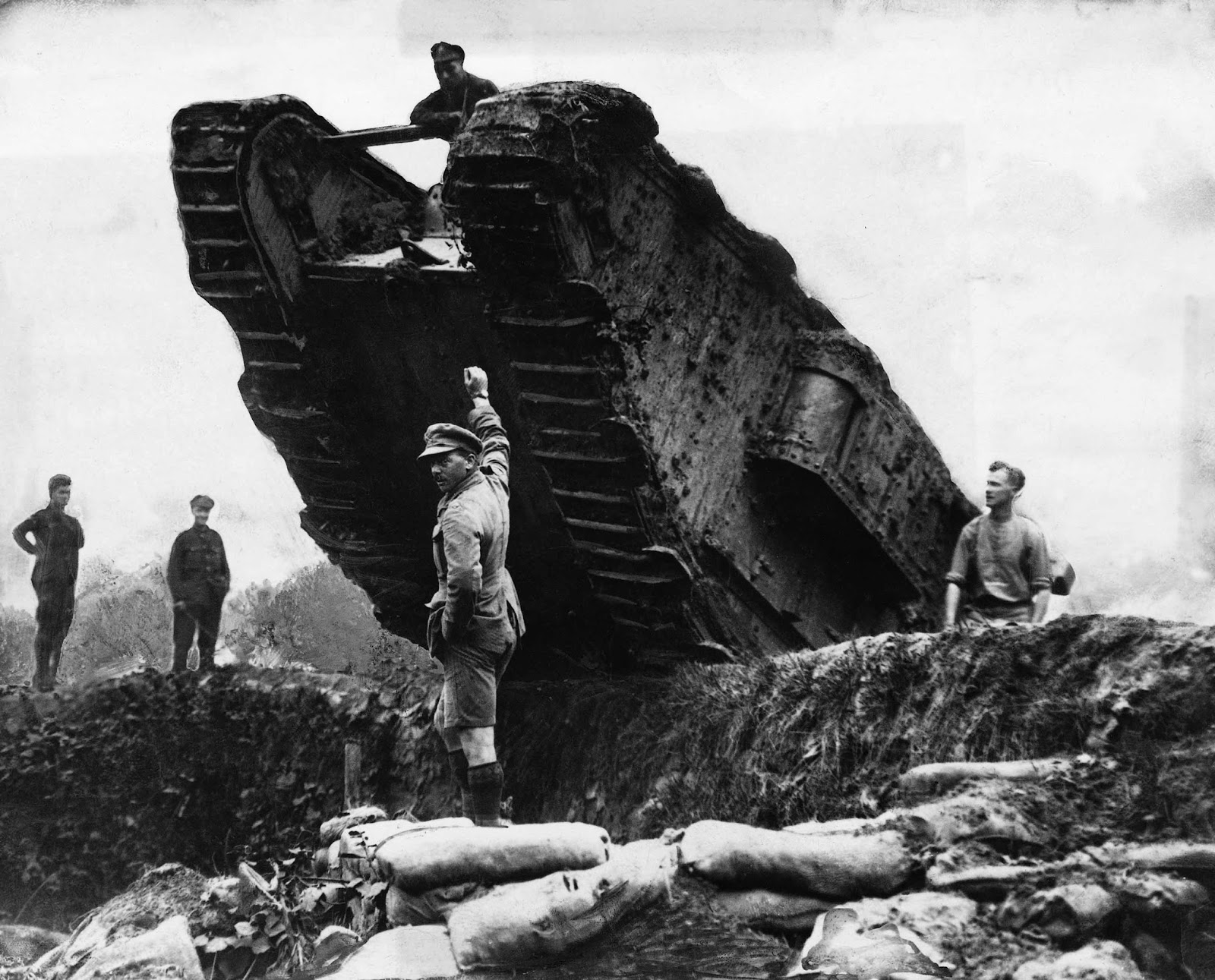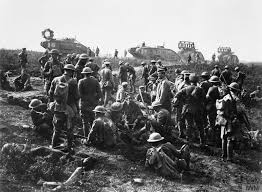Deployment Not Fast Enough, Lloyd George Tells House.
Matter of Life or Death.
The Tank Makes the Difference – Finally.
Special to The Great War Project
(19 November) For the British and especially the French, the American Expeditionary Force is far too slow to reach Europe.
On this day a century ago, the new French prime minister Georges Clemenceau tells the French chamber of deputies, he would not accept the new Russian government’s declaration of peace. “War, nothing but war,” is Clemenceau’s stand.

New French PM Georges Clemenceau presses for war, nothing but war.
At this crucial stage in the war, though, that requires fresh troops, and the only source of new troops is the U.S. But the situation with the American Expeditionary Force presents serious problems.
In a meeting under the strictest secrecy, the British Prime Minister David Lloyd George tells Colonel Edward House, President Woodrow Wilson’s closest confidante, that the American effort is not good enough.

Americans arriving in France.
“It had become clear,” writes historian Martin Gilbert, that the American hope — backed by the American commander General John J. Pershing — “of having a million armed Americans in Europe by the summer of 1918 was nowhere near realization. The most recent calculation of the maximum possible had reduced that number to 525,000 by May1918.”
“Nor would the United States have sufficient shipping tonnage available to supply and feed them all, possibly not until 1919.”
“Incompetence was also proving a problem,”
reports Gilbert, “some American supply ships were reaching France with less than fifty percent of their available cargo space taken up. For the British the prospect of the scaling down and postponement of the American contribution was a blow.”
“It is better,” Lloyd George told House, “that I should put the facts quite frankly to you, because there is a danger that you might think you can work up your army at leisure, and that it does not matter whether your troops are there in 1918 or 1919.

British tank brigade at Cambrai.
“I want you to understand,” Lloyd George told House, “that it might make the most vital difference.”
On the very day that Lloyd George is delivering this terrible news to House, the British are launching another huge offensive on the Western Front. But this time it is new and unusual.
The goal is to take the city of Cambrai in northern France. A quarter of a million British soldiers take part, facing an equal number on the German side, according to historian Martin Gilbert, along a six-mile front. “A thousand guns take part, and three hundred aircraft.”
“But the dominant feature of the battle,” writes Gilbert, “was that for the first time, the main thrust of the attack was carried out by tanks: 324 took part in the opening attack.
“The appearance of these metallic creatures,” wrote one soldier in his diary, “was grotesque and terrifying.”
The tanks are not decisive. “The initial success,” Gilbert writes, “was dampened and then stopped altogether by a design fault whereby the tank tracks broke down after a very short time in action.”
Nevertheless, the British forces do reach Cambrai, and the British newspapers declare THE GREATEST BRITISH VICTORY OF THE WAR and A SURPRISE FOR THE GERMANS.

British tanks at Cambrai.
This time, the headlines were not far off — at least for this first day of the battle for Cambrai.

Regarding the American build-up, I recently read “The Hello Girls” by Elizabeth Cobbs (published by Harvard University Press). It’s a good read; telling the story of women’s fight for the right to vote, Pershing trying to get the army ready for battle and how 223 American AT&T telephone operators (all women) sailed across the Atlantic and handled the telephone system for servicemen.